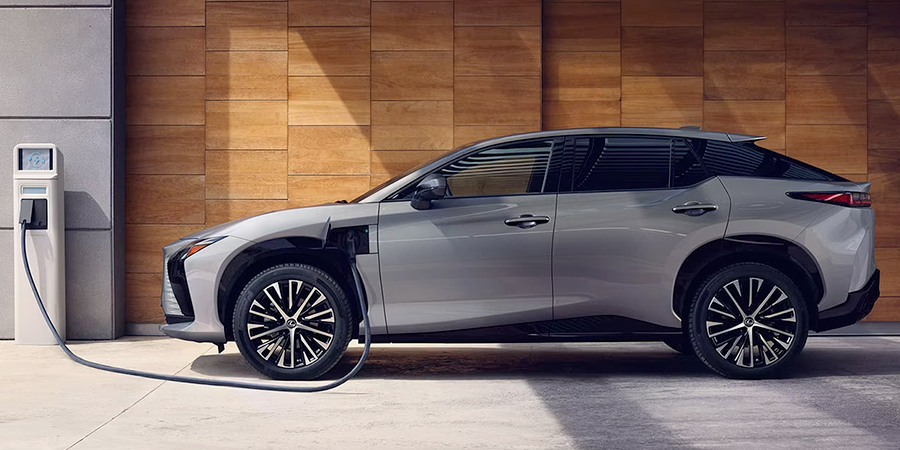
When considering a new vehicle, the debate between electric vehicles and gasoline-powered cars is more prevalent than ever. At Serra Auto Campus, our group of luxury car dealerships near Midland, we offer a range of high-end vehicles featuring both EV and gas power. To help you make an informed decision as you shop our selection of cars from BMW, Lexus, Porsche and Mercedes-Benz, we've compiled some frequently asked questions comparing EVs vs. gas cars.

Are EVs More Efficient than Gas-Powered Cars?
Yes, electric vehicles are generally more efficient than traditional gas cars. Electric car powertrains typically convert over 77% of the electrical energy from the grid to power at the wheels, while conventional gas vehicles only convert about 12%-30% of the energy stored in gasoline to power at the wheels. In other words, EVs convert more of their input energy into propulsion, making them inherently more efficient than traditional vehicles.
Beyond their more effective use of available power, EVs are also more efficient than their combustion-powered counterparts when comparing energy usage on an equivalent scale. How can you compare a gasoline engine’s efficiency to that of an electric motor? By using an electric car’s MPGe rating. This metric tells you how far an EV can go using the same amount of energy as found in a gallon of gasoline.
Here’s an example: a BMW i4 eDrive35 Gran Coupe is rated 120 MPGe combined; a BMW 3 Series -- specifically, a 330i xDrive -- is rated at 27 mpg combined. This means that an i4 can travel 120 miles before using the same amount of energy that a 3 Series requires to travel just 27 miles.

What's the Difference in Maintenance Requirements for EVs vs Gas Cars?
Maintenance is often simplified with electric vehicles. Since EVs have fewer moving parts, they require less frequent service. There's no need for oil changes, spark plug replacement or exhaust system repairs, for starters. Though some EV maintenance is still required, such as suspension, tire and brake work, it’s still easier and more affordable to service an EV than repair or replace traditional parts like timing belts, water pumps and catalytic converters.
Are Refueling Costs Lower for EVs Compared to Gas Cars?
The cost to "refuel" an EV is generally lower than filling up a gas car, especially when considering rising gas prices. Although electricity rates can vary, the cost per mile to charge an EV typically falls below that of gasoline per mile.
To put EV charging costs in perspective, consider the new Porsche Taycan and its 79.2 kWh battery capacity. At a common Michigan electricity rate of $0.18 per kWh, you would pay about $14.50 to fully charge this battery from empty. That’s far less than filling an empty gas tank of any modern car.

Buy an EV in Michigan at Serra Auto Campus
A new EV is an excellent way to save money and drive green. To learn more, contact Serra Auto Campus, where we’ll help you find the perfect electric Lexus, BMW, Porsche or Mercedes-Benz. Don’t wait any longer -- drive into the future with a new luxury EV in Michigan today.

